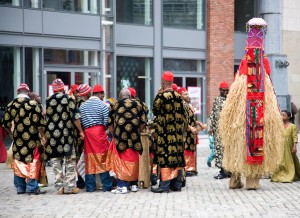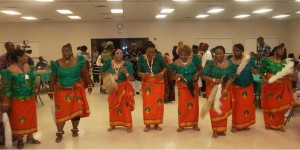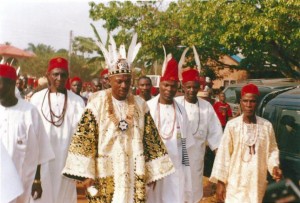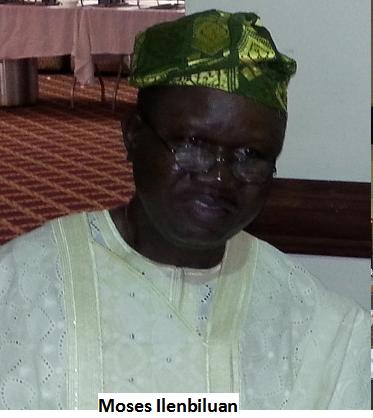Igbo people are increasingly known as a people that shun, deny and castigate their language at home and in Diaspora. In a forced attempt to show off, or adapt and belong to an imaginary elite class, some Igbos magically shed their ‘thick’ accent, modify their names (Chiwetel), and refuse to associate with anyone that remind them of their ‘not-so-glorious’ origins. Some Igbo speaking people are ensconced in self-loathing, so deep that they fear to be identified as Igbos in Diaspora. Our People are first, Americans. British. Jew, yes, Jew, before Igbo. Most cannot make a sentence in Igbo without the use of three or more English or Latin words.  In fact, Igbos across the US and Britain use English as their primary means of communication in family and ‘Kparakpo’ meetings! They struggle to showcase how flawless they command the English language to the chagrin of a few, who cringe at how they butcher the language they so proudly speak. In most cases, the cacophony of their speeches sounds like elephants on a free fall down an Iroko tree.
In fact, Igbos across the US and Britain use English as their primary means of communication in family and ‘Kparakpo’ meetings! They struggle to showcase how flawless they command the English language to the chagrin of a few, who cringe at how they butcher the language they so proudly speak. In most cases, the cacophony of their speeches sounds like elephants on a free fall down an Iroko tree.
Needless to remind Igbos that there are reasons world leaders, who speak good English in private, choose to speak in their native tongues in public, particularly in fora that give prominence to their countries of origin. There are reasons why renowned statesmen and women dress up in attires that positively reflect on cultures and peoples they represent. There are reasons patriotic nationals in Diaspora cling desperately to their countries’ flags like chaplets or subha in Ramadan. There are reasons why Jesus spoke in Aramaic, and was recorded in Aramaic. There were strategic reasons why slave masters redistributed slaves who identified with and spoke a common language. With their languages gone, their names and cultures and essence were taken away from them! We are witnesses to the result today: eternal purgatory.
Languages are dying by the day. This happens because speakers of such languages let them die. They let their languages die because they are ashamed of their native tongues; because they are minorities. They are the modern generation, better than their ancestors. They claim to have morphed into better ‘species’ and learnt to speak the ‘IT’ language of the day with finesse. Languages are dying not because any language is less than another, but because native speakers (the custodians) are lazy, ignorant, vain and without vision. They make pathetic utilitarian excuses on the value of advancing languages that add ‘nothing’ to their job prospects in a global economy. So, they turn the other way and let their languages die. They let Aramaic die!
This attitude is the unintended consequences of forcing this generation to speak English at all costs; and the conscious undermining of Igbo school curricula. This led to the internalization of a subconscious rejection of the Igbo language, the misplaced association of intelligence with an ability to speak ‘flawless’ English, and the continued ridicule of those who do not speak Queen’s English, or cannot contort their intonation enough to lose their accents. This attitude of disdain for the Igbo language has since been transferred to Igbo children. Many ban their children from speaking Igbo (Yoruba/Hausa/Efik…) in their homes. Today, we collectively reap the rewards of our ‘Oyibo’ mentality. It is paradoxical to watch parents turn to heaven in tears with hands crucifix to ask where their children learnt such, such and such behavior.
Evidence shows that there is a relationship between native speakers’ ability to read and write in their native tongues and the transference of technological knowhow. A careful examination of this theory using Japan, China, India, Israel, Germany, France or Malaysia as a case study will buttress this view, against the impossible challenges nations whose brightest brains attempt to impact acquired knowledge to their people in adopted languages they were trained in. Asians are not only protective of their culture and language, but passionate about them. They take pride in speaking and teaching their children their languages, and still do exceedingly well in school. Their advancement is a product of a conscientious effort made possible by a common denominator: LANGUAGE!. Imagine a world in which all Igbo/Yoruba/Hausa children can study mathematics, politics (government) and physics in their native tongues. A world all African children can dream and think in their own languages. The result would be astounding.
As such, ‘Speak Igbo, Please’ is a clarion call to all who fear the demise of their native tongue to take urgent action to revitalize their language. In other words, if you are a Native American, whether of the Arapahoe or Innu tribe, this bell rings for you too. Take pride on your language; your culture. Speak your language to your children, everyday and in every way. Start the day with words your mother raised you with; with words that organize the cosmos in practical terms to your young child’s mind. As for the Igbos, the Igbo language must be reinstated in school curricula from kindergarten to secondary school. It must be made compulsory up to JSS III, for the Igbo language to survive. Most of all, parents must teach their children their languages. In other words, they must speak their languages themselves then their children will take after them and consequently take ownership of the language someday. This is why God was emphatic in Deuteronomy 6:7; and 11: 19 that parents teach the word to their children, talking about them when they sit at home and when they walk along the road, when they lie down and when they get up.
For Igbos in Diaspora, it would help greatly if at your functions and group meetings you insist on speaking in your native language, particularly as you conduct meetings via teleconference, and your children listening in. They hear you even from closed doors, and imbibe tit bits of your culture and character as manifested in your dialogues/exchanges with your people. This is lost when you speak English, so, reinforce, teach and celebrate your language with every opportunity you get given the limited time you spend with your children. Many might argue they do not know how to speak their language anymore; that it has been too long they left home; that they are married to someone from another country, that it is too hard…It is OK. The most important thing is a conscious attempt to try; to learn your own language and pass it on. There is even an APP to learn Igbo for free. If others can find time to learn and speak Igbo/Yoruba/Hausa language, there is no reason we cannot retrace our steps to save our beloved language. Most of all, visit home. Take your children home, and let them appreciate your humble beginnings








Thanks for finally talking about >A Claron Calll to Igbos in the Diaspora- By Emeka Aroh | African Metro Neews production music
you need to maintain your own electronics market on the airplane you have made.